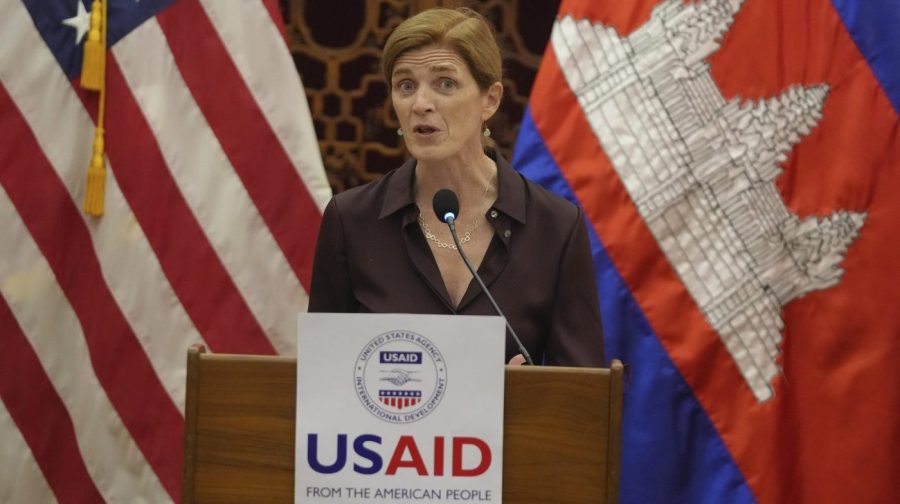I am a life-long Democrat, and a lukewarm Kamala Harris voter, but I agree with the central premise of Project 2025’s chapter on the U.S. Agency for International Development (USAID) — that the Trump administration should drastically scale back the agency’s global footprint. America’s current foreign assistance is untethered to our desired foreign policy outcomes.
In most cases, American aid does not promote our interests abroad because its strategic purpose is ill-conceived. Furthermore, most U.S.-funded projects — even when well thought out — fail to achieve their intended outcomes because of a broken delivery system. When it comes to USAID, Trump is right: “The system is rigged.” Only deep and significant cuts can force strategic alignment and create the right incentives for the necessary reforms.
Over the last five years, leaders at USAID have directed the majority of American humanitarian and development assistance to countries and issues with questionable strategic rationale. Yes, we continue to spend plenty in countries where are our alliances are strong, such as Colombia, Egypt, Israel, Jordan, Mexico and the Philippines. And yes, we continue to use USAID to complement our hard-power objectives in places like Syria and Ukraine.
However, we will spend the majority of the $37 billion this year in places that fall in between these categories — on “sort of” allies (such as Chad) and on “sort of” pressing issues (women’s empowerment in Cambodia). We could return to pre-COVID levels of USAID spending if we started by zeroing out in 2025 all new assistance to non-mission-critical countries and issues. This is the wake-up call that the system needs.
Many of my former USAID colleagues and most international development professionals will vehemently reject this proposal. They will claim that the repercussions to our global image would be immeasurable and that millions of people in the world’s poorest countries would suffer. Others may accept that the system is broken but likely protest that Trump and his team are the wrong people to lead reforms.
I disagree, because we are currently the global lynchpin of a decaying aid system that routinely tarnishes our image. From years working for and in partnership with USAID on numerous projects in the Horn of Africa, I know firsthand that this ineffective system willfully ignores billions of dollars of waste, fraud and abuse by a self-serving and politicized aid industrial complex. Sadly, the Biden administration increased America’s financial commitment to this failed system.
To maximize our global impact and honor the American taxpayer, we must rebuild our foreign aid system from the ground up. As Project 2025 suggests, the USAID administrator should serve as director of foreign assistance, with the rank of deputy secretary of State, overseeing all U.S. foreign assistance. The secretary of State and USAID administrator should then together prioritize countries and issues that align directly with America’s national interests.
In the immediate term, it is obvious that, whatever paths the Ukraine-Russia and Israel-Hamas wars take, bilateral humanitarian and development assistance will be required to meet immediate needs, secure the peace and support post-conflict stabilization and reconstruction efforts. Similarly, America’s Indo-Pacific Strategy should guide USAID’s approaches to allocating and disbursing foreign aid in the region to build partnerships and counter China. Finally, programs that augment border security and promote American technological and energy sectors abroad should take precedence.
Beyond these clear priorities, the administrator must question the strategic rationale behind funding in every country and region, as well as for transnational issues. Programs with vague objectives — such as broadly improving smallholder productivity in Mozambique — should no longer suffice without a direct link to U.S. interests. Crucially, this exercise to reassess our core interests should involve American embassies and other expertise at the State Department, the Department of Defense, the private sector, religious communities and philanthropists. The outcome of these realignment sessions should shape the 2026 budget and beyond.
Reducing USAID’s global footprint will allow the agency to focus more effectively on transparency, accountability and — most importantly — outcomes. For example, USAID currently supports tens of thousands of small businesses in dozens of countries. When asked, the agency struggles to explain the overall impact of this assistance in the name of the American people. The sheer scale and lack of prioritization make it difficult to aggregate results or demonstrate how these initiatives advance core national objectives.
A sharper strategic focus by USAID would concentrate resources on countries and programs that deliver measurable humanitarian and development outcomes but that also reinforce our geopolitical, security and economic priorities. Such deep cuts and outcome-driven strategies would compel USAID to rethink its approach to partnerships with other donor nations and the private sector.
For 2025, Biden requested $28.3 billion for USAID — an amount that excluded Ukraine spending, which was covered in a supplemental funding bill. Reducing the annual budget to $19 billion would bring USAID’s funding (adjusted for inflation) to the level spent during the peak of the Iraq and Afghanistan wars in 2004. This shock to the system would force USAID and its many champions and partners to sharpen the agency’s focus on American strategic priorities, rather than tolerate the inefficiencies of a well-meaning institution that unfortunately has been captured by many self-serving actors.
This reform should be a bipartisan effort. We should all want better outcomes that advance American interests at home and abroad, including humanitarian efforts to help those in most need in times of crisis. True leadership means not doing more with flawed approaches and tools, but doing better with focused strategies, effective partnerships and measurable results. This moment calls for bold action — not to withdraw from the world, but to engage it with discipline and purpose.
Sean P. Brooks led USAID’s stabilization programming in Somalia and now manages Tethered Up, a consulting firm that supports innovators in complex places.

